28 books to read in 2016
Looking for something to read? Let The Week be your guide.

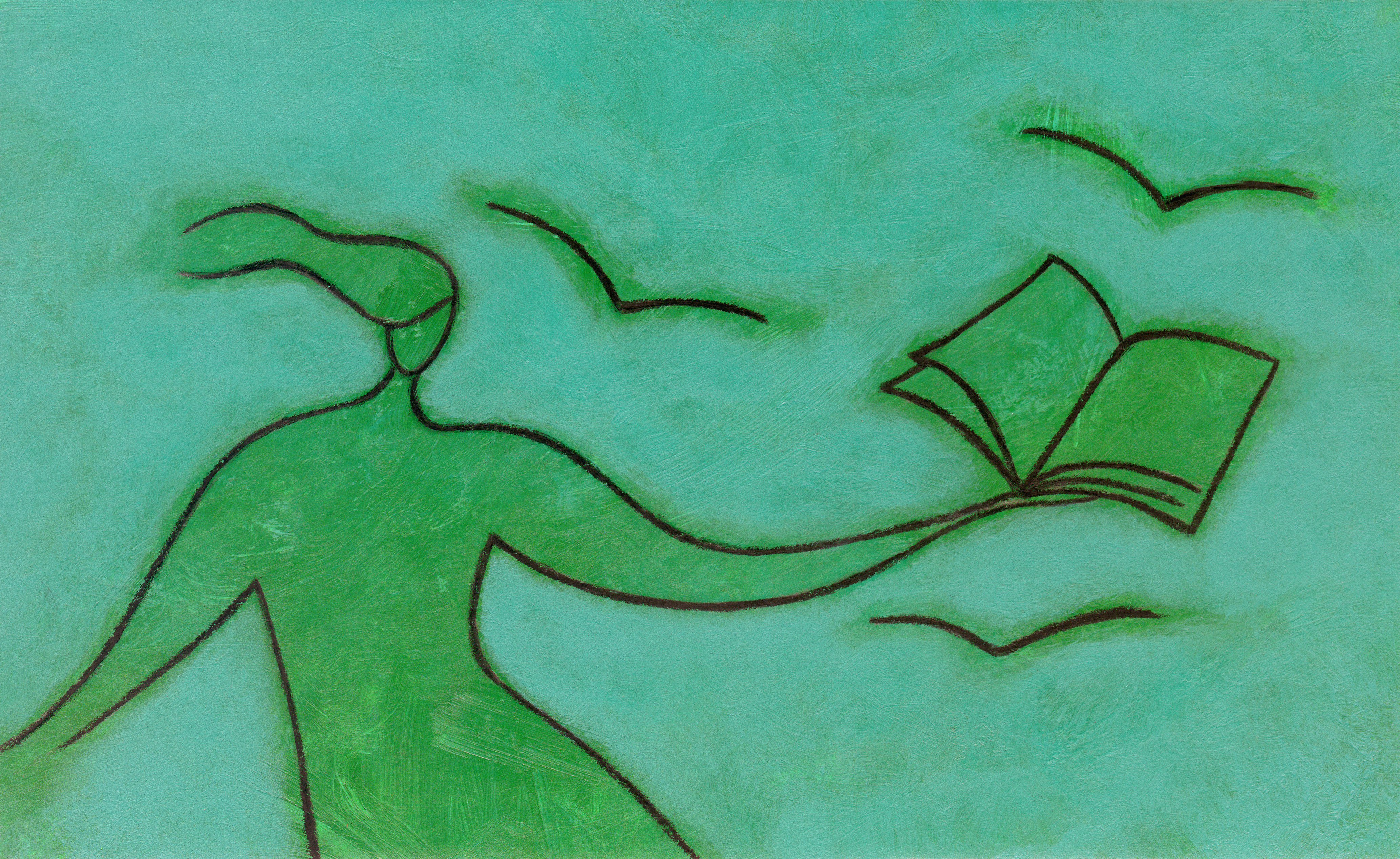
The "death of the book" has been greatly exaggerated: If the 2016 forecast is any indicator, literature is alive and well. From novels by homegrown giants like Don DeLillo, Stephen King, and Annie Proulx to debut authors sparking seven- and eight-figure bidding wars, 2016 promises to be a really, really great year with lots to discover.
But where to begin? Let The Week be your guide:
JANUARY
The Week
Escape your echo chamber. Get the facts behind the news, plus analysis from multiple perspectives.

Sign up for The Week's Free Newsletters
From our morning news briefing to a weekly Good News Newsletter, get the best of The Week delivered directly to your inbox.
From our morning news briefing to a weekly Good News Newsletter, get the best of The Week delivered directly to your inbox.
Your Heart Is a Muscle the Size of a Fist, by Sunil Yapa (Jan. 12)
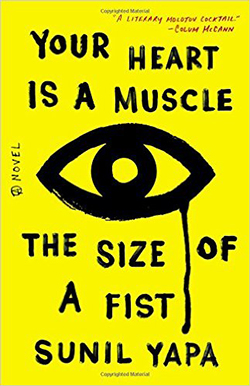
The 1999 Seattle WTO protests are the backdrop for Sunil Yapa's multi-faceted debut novel, which follows the fate of seven people: teenage Victor, who runs away from home to join the protests; Victor's estranged father, police Chief Bishop; two non-violent protesters; two policemen; and the financial minister from Sri Lanka. Colum McCann irresistibly describes the resulting concoction as "a literary molotov cocktail to light up the dark."
Girl Through Glass, by Sari Wilson (Jan. 26)
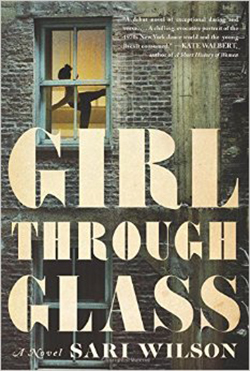
Obsession, competition, betrayal — it is the summer of 1977 and 11-year-old Mira, an aspiring ballerina, is embroiled in all three. While her home holds her parents' ugly divorce, Mira finds escape in ballet, where her relationship with her much-older mentor intensifies and darkens. In the present day, another dance instructor also becomes entangled in a risky relationship with a student. Weaving together past and present, Girl Through Glass is a complex coming-of-age debut.
A free daily email with the biggest news stories of the day – and the best features from TheWeek.com
Fine, Fine, Fine, Fine, Fine, by Diane Williams (Jan. 26)
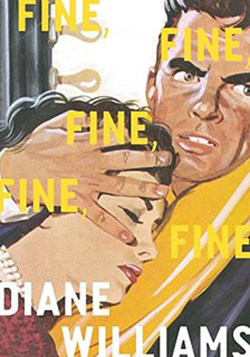
If you're prone to judging books by their covers, Fine, Fine, Fine, Fine, Fine is likely as irresistible as what lies inside: Williams' super-short stories are "folk tales that hammer like a nail gun." Intrigued? You can read an excerpt here. Not intrigued? Well, you should be: Fine x 5 is out of McSweeney's, which does everything just a liiiittle bit different in the best possible way.
Also noteworthy in January: The Past, by Tessa Hadley (January 5); Mr. Splitfoot, by Samantha Hunt (January 5); The Lightkeepers, by Abby Geni (January 12); My Name is Lucy Barton, by Elizabeth Strout (January 12); What Belongs to You, by Garth Greenwell (January 19); The Narrow Door: A Memoir of Friendship, by Paul Lisicky (January 19).
FEBRUARY
The Queen of the Night, by Alexander Chee (Feb. 2)
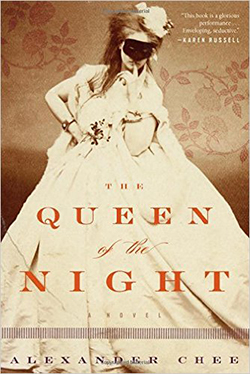
You don't want to be the silly person asking, "Who?" when Alexander Chee blows up with the publication of his first book in over a decade, The Queen of the Night. Chee won a Whiting Award for his first novel, Edinburgh, and Junot Díaz has since called him "the fire, in my opinion, and the light." The Queen of Night is Chee's triumphant return to fiction, set in the glitz and grime of the 19th century Paris Opera. Lilliet Berne is a legendary soprano who is offered a shot at leaving a permanent mark on history when she is offered an original role — only, the libretto is based on a secret piece of her past. Chock full of romance, intrigue, and sprinklings of real history, The Queen of Night is the first truly epic novel of the year.
Shaler's Fish, by Helen Macdonald (Feb. 2)
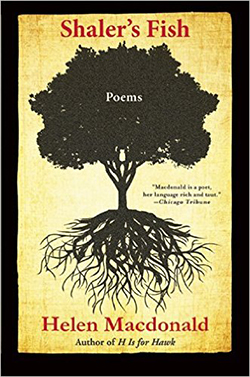
Helen Macdonald earned her much-deserved following last year with her memoir, H is for Hawk. However, she is also a poet — one who moves gracefully from the specific to the large and philosophical. This slim-yet-powerful collection gathers the best examples of her flexibility and her precision, each written with the same eye and lyricism that has made her prose unrivaled.
The High Mountains of Portugal, by Yann Martel (Feb. 2)
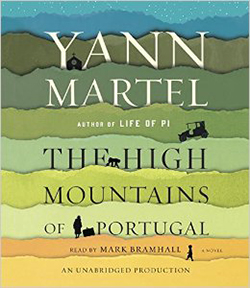
Yann Martel rocketed onto the literary scene in 2003 with his mega-bestseller, Life of Pi. However, the Canadian author fizzled out after the publication of Pi's lackluster follow-up, Beatrice and Virgil, in 2010. There's good news, though: Early reviews have confirmed that Martel has recovered his lost footing with The High Mountains of Portugal, which transports readers to Lisbon in 1904. When Tomás discovers an old journal, he has a chance to redefine history if he can recover a mystical treasure. The consequences of his quest reverberate throughout history, drawing in a Portuguese pathologist 35 years later and, 50 years on, a Canadian senator returning to his ancestral village.
The Creative Tarot: A Modern Guide to an Inspired Life, by Jessa Crispin (Feb. 16)
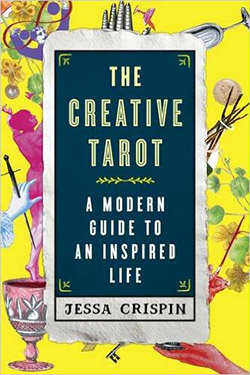
Critic Jessa Crispin has spent years promoting fantastic literature with her comprehensive blog, Bookslut. She has spend some time on the other side of the pen, too, publishing a memoir and "literary map," The Dead Ladies Project, last year. Crispin is back again this February, exploring a different interest altogether: tarot. The Creative Tarot is advertised as being "a hip, accessible, and practical guide for artists and creative people looking to tarot for guidance and inspiration," although you can count on Crispin to sprinkle in stories about how famous artists like Virginia Woolf, Rembrandt, and David Bowie found inspiration, too. Whether you're a tarot pro or just an artist looking for some elusive inspiration, The Creative Tarot is a beautifully illustrated handbook that hopes to set you on the path to creation.
Also noteworthy in February: The Black Presidency: Barack Obama and the Politics of Race in America, by Michael Eric Dyson (Feb. 2); Sudden Death, by Álvaro Enrigue (Feb. 9); You Should Pity Us Instead, Amy Gustine (Feb. 9); In Other Words, by Jhumpa Lahiri (Feb. 9); Ways to Disappear, by Idra Novey (Feb. 9); Better Living Through Criticism: How to Think about Art, Pleasure, Beauty, and Truth, by A.C. Scott (Feb. 9); Private Citizens, by Tony Tulathimutte (Feb. 9); The Heart, by Maylis de Kerangal (Feb. 9); The Lost Time Accidents, by John Wray (Feb. 9); A Doubter's Almanac, by Ethan Canin (Feb. 16); And After Many Days, by Jowhor Ile (Feb. 16); Why We Came to the City, by Kristopher Jansma (Feb. 16); Cities I've Never Lived In: Stories, by Sara Majka (Feb. 16); What Lies Between Us, by Nayomi Munaweera (Feb. 16).
MARCH
At the Existentialist Café: Freedom, Being, and Apricot Cocktails with Jean-Paul Sartre, Simone de Beauvoir, Albert Camus, Martin Heidegger, Maurice Merleau-Ponty, and Others, by Sarah Bakewell (Mar. 1)

Sarah Bakewell's At the Existentialist Café probably comes close to having the longest title of 2016, but it also happens to tackle one of the most fascinating subjects. Rewinding to Paris, 1933, Bakewell takes readers to the very birth of phenomenology — the belief that reality is only what is perceived by the human consciousness — when Raymond Aron remarked to Jean-Paul Sartre and Simone de Beauvoir over apricot cocktails that, "You see, if you are a phenomenologist, you can talk about this cocktail and make philosophy out of it!" In the boozy, smoky jazz clubs of the Left Bank, the existentialists' story is also that of the evolution of anti-colonialism, feminism, and gay rights.
The Winged Histories, by Sofia Samatar (Mar. 8)

Sofia Samatar has won numerous prizes for her popular novel, A Stranger in Olondria. She returns this year with The Winged Histories out of Small Beer Press, an independent fantasy and fiction publishing house founded by Gavin Grant (editor also of Lady Churchill's Rosebud Wristlet) and his wife, Kelly Link (Get in Trouble: Stories) — so you know it's got to be good. The Winged Histories is the story of a soldier, a scholar, a poet, and a socialite in the throes of a rebellion that has divided the empire of Olondria. However, for the four women, the struggle is not one just to survive, but to leave a lasting mark on history itself. Kirkus Reviews calls Samatar "a writer of uncommon beauty, and she takes a genre that has historically tended to focus on the heroic exploits of men and shows how those exploits involve and affect women."
Innocents and Others, by Dana Spiotta (Mar. 8)
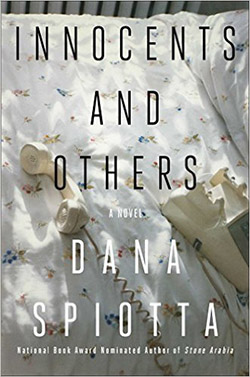
Innocents and Others is getting rave reviews from the cream of the crop — George Saunders, Rachel Kushner, Mary Carr, Joshua Ferris, and Jess Walter are among the authors singing Dana Spiotta's praises. The story follows two women filmmakers in 1980s L.A. — best friends, Meadow and Carrie — who meet an erotic and mysterious older loner called Jelly who seduces men not with sex, but by listening. Kushner likens Innocents to Jean-Luc Godard's classic films, calling it "brilliant, and erotic, and pop."
So Sad Today: Personal Essays, by Melissa Broder (Mar. 15)
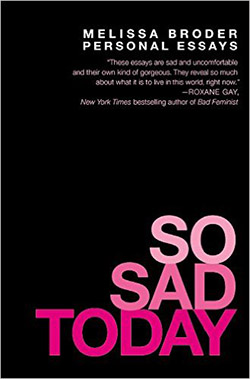
Poet Melissa Broder recently revealed herself to be behind the enormously popular Twitter account @sosadtoday, where she anonymously expressed and coped with her anxiety in ways that were both dark and hysterically funny. In So Sad Today, Broder takes those musings beyond Twitter's 140-character limit to grapple more deeply with "sex, death, love, low self-esteem, addiction, and the drama of waiting for the universe to text you back."
Confessions, by Rabee Jaber, trans. by Kareem James Abu-Zeid (Mar. 21)
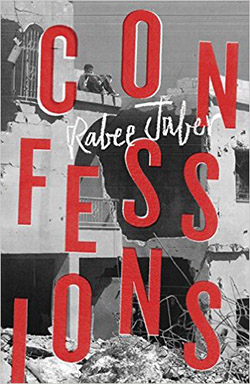
"My father used to kidnap and kill people..." This is the first confession by the narrator of Rabee Jaber's unflinching thriller about trauma and forgiveness, set in the chaos of the Lebanese Civil War. When the narrator's parents are killed at a roadblock in Beirut, he is adopted by the assassins and raised in their family. Jabar is a Lebanese writer and journalist who won the International Prize for Arabic Fiction with America. Confessions is deftly translated by Kareem James Abu-Zeid.
Also noteworthy in March: All the Single Ladies: Unmarried Women and the Rise of an Independent Nation, by Rebecca Traister (March 1); Blackass, by A. Igoni Barrett (March 1); What Is Not Yours Is Not Yours: Stories, by Helen Oyeyemi (March 8); High Dive, by Jonathan Lee (March 8); The Selected Letters of Laura Ingalls Wilder, by William Anderson and Laura Ingalls Wilder (March 8); Is that Kafka?: 99 Finds, by Reiner Stach (March 14); The North Water, by Ian McGuire (March 15); Stork Mountain, by Miroslav Penkov (March 15); Margaret the First: A Novel, by Danielle Dutton (March 15); The Nest, by Cynthia D'Aprix Sweeney (March 22); The Association of Small Bombs, by Karen Mahajan (March 22); The Year of the Runaways, by Sunjeev Sahota (March 29); Montauk, by Max Frisch (March 31).
APRIL
Kill 'Em and Leave: Searching for James Brown and the American Soul, by James McBride (April 5)
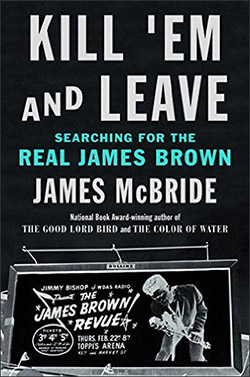
James McBride won the National Book Award for fiction in 2013 with The Good Lord Bird, but McBride's victory lap is something altogether different: A nonfiction account of his journey to find the "real" James Brown. Brown, of course, was the genius soul artist responsible for helping pop music become what we know today. He also had a turbulent and mysterious life. McBride digs into a dark and unsettling piece of American history that takes him from South Carolina to England to the feet of Reverend Al Sharpton, all the while doing justice to one of the most important cultural voices the United States has known.
The Killing of Osama Bin Laden, by Seymour M. Hersh (April 12)
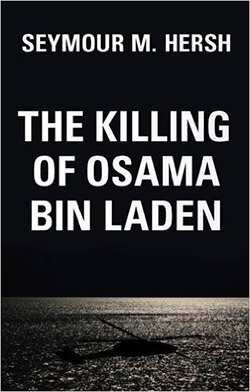
For a moment, it looked as if Seymour M. Hersh could change everything: A longtime investigative journalist, Hersh published a potentially history-rewriting story in the London Review of Books last spring that raised doubts about the U.S. government's version of the raid that killed Osama Bin Laden. Hersh's story relied heavily on anonymous sources and supposedly revealed that the Obama administration broke a deal with Pakistan in publicly raiding Bin Laden's compound, while the countries had previously agreed to say the al-Qaeda founder had died in a drone strike. However, Hersh's story was almost immediately called into question — had the president really lied about the raid? — even as some news outlets were able to corroborate parts of the story. (The Hersh drama more or less coalesced in this hilarious viral Slate interview.) At long last, we can all decide for ourselves what we think of Hersh's story: It's being published in full this April.
Ladivine, by Marie NDiaye (April 26)
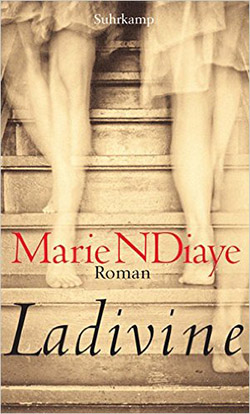
Born in France to a French mother and Senegalese father, NDiaye published her first book at 18, going on to earn the Prix Goncourt for Three Strong Women and, last year, the Gold Medal in Arts from the Kennedy Center International Committee on the Arts. Her latest novel, Ladivine, tells the story of Clarisse Rivière, who keeps her poor seamstress mother, Ladivine, a secret from her husband and daughter, who is also named Ladivine. Names hold a lot of meaning in this novel: Clarisse, in fact, was born Malinka, a name she shed along with her past. Twenty-five years go by and, finally, Clarisse's world comes crashing down, leaving the narrative to her daughter to pick up.
Also noteworthy in April: Alice & Oliver, by Charles Bock (April 5); The Midnight Assassin: Panic, Scandal, and the Hunt for America's First Serial Killer, by Skip Hollandsworth (April 5); All Tomorrow's Parties: A Memoir, by Rob Spillman (April 5); Our Young Man, by Edmund White (April 5); Rapture: Poems, by Sjohnna McCray (April 5); Night Sky with Exit Wounds, by Ocean Vuong (April 12); My Struggle: Book Five, by Karl Ove Knausgaard (April 19); Eligible: A Modern Retelling of Pride and Prejudice, by Curtis Sittenfeld (April 19).
MAY
Eleven Hours, by Pamela Erens (May 2)
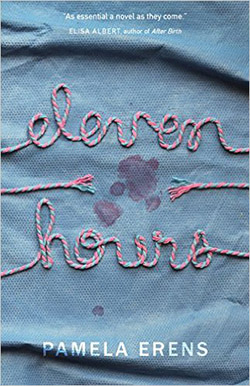
Pamela Erens' second novel, The Virgins, was a haunting depiction of girlhood that earned her Best Book honors from The New Yorker, The New Republic, and Salon. Her newest novel, Eleven Hours, distills another uniquely feminine experience — childbirth. When Lore arrives at the hospital in labor, she has no one — no family, no husband — except for her nurse, Franckline, who is also pregnant. Lore insists on delivering her baby without a fetal monitor, IV, or epidural, despite the increasingly difficult birth. Erens is in her element as pasts come tumbling into the present; fully expect her to startle you.
Zero K, by Don DeLillo (May 10)
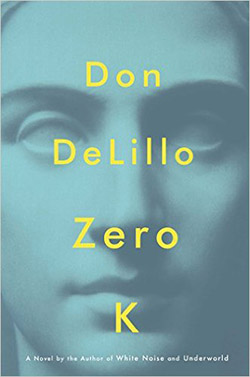
Who is the greatest living novelist? A case could be made that it is Don DeLillo, who is back on the scene this year with Zero K. Billionaire Ross Lockhart's young wife, Artis Martineau, is succumbing to an illness, leaving Ross to invest in a secret compound that preserves bodies until medical advances can return them to life. Jeffrey Lockhart, Ross' son, joins the family at the remote location to say goodbye to Martineau, despite his own resolve to cling to life.
LaRose, by Louise Erdrich (May 10)
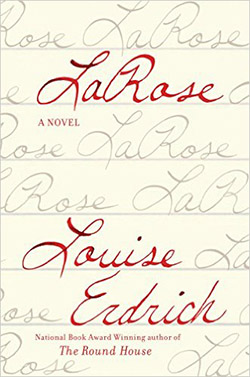
A winner of the National Book Award with The Round House and a Pulitzer Prize nominee with The Plague of Doves, it is probably fair to expect similar honors for Louise Erdrich's forthcoming LaRose. Set in North Dakota in 1999, Landreaux Iron is deer hunting when he misses a buck and kills his neighbor's 5-year-old son, Dusty. Following an ancient method of retribution, Landreaux and his wife give their own son, LaRose, to Dusty's parents to make up for the loss. But later, when a man with a grudge against Landreaux reemerges, the fragile peace between the two families is threatened once again.
The Gene: An Intimate History, by Siddhartha Mukherjee (May 17)
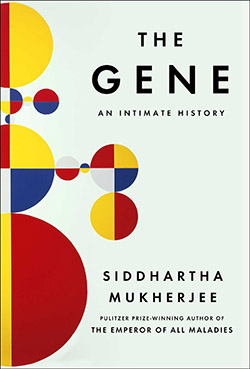
Siddhartha Mukherjee won a Pulitzer Prize for The Emperor of All Maladies, which charted the history of cancer from its early documentation to our contemporary understanding of the disease. Now Mukherjee turns his attention to the very essence of us: the gene. Again using science, history, and personal narrative, Mukherjee has written an accessible account of centuries of genetic study while at the same time exploring his family's own tragic lineage of mental illness. But like genes themselves, Mukherjee doesn't get bogged down in the personal: This is, at its core, a story about the future of humanity itself.
Nitro Mountain, by Lee Clay Johnson (May 17)
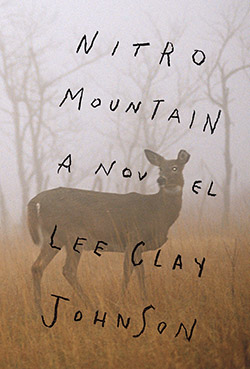
Nitro Mountain might not exactly be the best beach read: By all accounts, it's dark — really, really dark. In an impoverished corner of Virginia, Leon's would-be girlfriend, Jennifer, is living with a dangerous, striking psychopath named Arnett. Jennifer has known little in life but the hopelessness that defines life in the depressed mining region — yet she hopes for an escape in asking Leon to help poison Arnett. Nitro Mountain is Lee Clay Johnson's debut, but it has already drawn the attention of the right kinds of people: Joy Williams called it, "Perturbingly good. Hazardous. Addictive. Harrowing and hilarious too.” Take a deep breath and jump right in.
Little Labors, by Rivka Galchen (May 16)
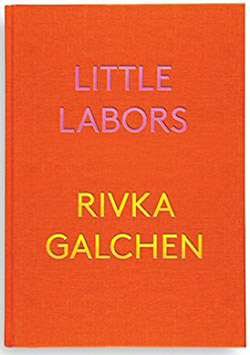
There has been a lot of quiet excitement surrounding the release of Little Labors. Modeled after The Pillow Book — Sei Shonagon's musings on court life in Heian Japan in the 990s and early 1000s — Galchen's exploration of literature and motherhood is composed of everything from a single sentence to full-blown story or essay. In a sense, Galchen has both completely reinvented the "memoir" as we know it — while revisiting a mode of observing and storytelling that is hundreds of years old.
Also noteworthy in May: White Sands: Experiences from the Outside World, by Geoff Dyer (May 3); Sweet Lamb of Heaven, by Lydia Millet (May 3); The Sport of Kings, by C.E. Morgan (May 3); Policing the Planet: Why the Policing Crisis Led to Black Lives Matter, by Jordan T. Camp and Christina Heatherton (May 10); The Fox Was Ever the Hunter, by Herta Müller (May 10); The After Party, Anton DiSclafani (May 17); The Money Cult: Capitalism, Christianity, and the Unmaking of the American Dream, by Chris Lehmann (May 17); Joe Gould's Teeth, by Jill Lepore (May 17); Dear Fang, With Love, by Rufi Thorpe (May 24); Exquisite Masochism: Marriage, Sex, and the Novel Form, by Claire Jarvis (May 26); The View from the Cheap Seats: Selected Nonfiction, by Neil Gaiman (May 31); Modern Lovers, by Emma Straub (May 31).
JUNE
Hunger: A Memoir of (My) Body, by Roxane Gay (June 14)

The wildly popular novelist, columnist, blogger, and Twitter personality Roxane Gay follows up her bestseller, Bad Feminist, with a memoir about self-image, weight, and the body. Describing her body as being "wildly undisciplined," Gay navigates the tightrope between desire, denial, self-comfort, and self-care. But don't ignore this memoir because you think you know where it's going: "This is not a book about triumph," Gay begins. "I started this book fat, and I'm finishing it fat...This isn't a book about successful weight loss." For Gay, "self-care" doesn't mean losing weight — it means changing her entire relationship with food. Gay, who somehow seems able to do everything, will also be releasing a young adult novel called The Year I Learned Everything sometime in the coming year.
Homegoing, by Yaa Gyasi (June 7)
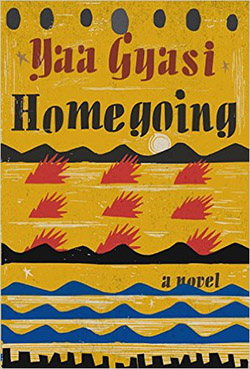
The talk of the London Book Fair last spring was Yaa Gyasi's seven-figure debut book deal, which went to Knopf in a 10-bidder showdown. It is increasingly sounding like the publisher's gamble is going to pay off: Gyasi's novel spans 300 years across Ghana and the United States. Half sisters Effia and Esi are born unbeknownst to each other in two different villages in Ghana, with Effia eventually being married off to a rich Englishman and Esi being imprisoned in the dungeon of Cape Coast Castle — beneath Effia's feet. Esi is eventually shipped to America, where she is sold into slavery. "Sin comes in all forms, from selling people to abandoning children. I think I needed to read a book like this to remember what is possible. I think I needed to remember what happens when you pair a gifted literary mind to an epic task. Homegoing is an inspiration," Ta-Nehisi Coates has raved.
The Girls, by Emma Cline (June 14)
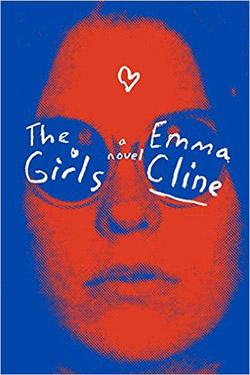
Speaking of insane book bids, The Girls takes the cake: Random House locked it up in a $2 million three-book deal with 25-year-old Emma Cline. "The girls" in question are a fictionalized version of the Mason clan, told from one acolyte’s point of view. Evie Boyd finds herself caught up in the frenzy of a new group of friends, moving to live on their ranch with a charismatic leader as her obsession with another devotee, Suzanne, intensifies. This one is going to be dark.
Barkskins, by Annie Proulx (June 14)
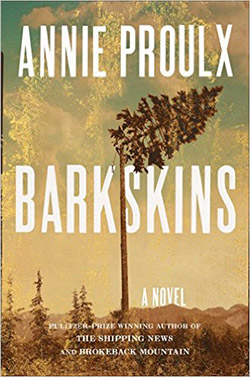
Annie Proulx is another monument of American literature: Perhaps being best known for her masterful story Brokeback Mountain, she has got both a Pulitzer Prize and a National Book Award under her belt. Her latest book, Barkskins, has been in the works for five years, and begins with two woodcutters in late 17th century France. One, René Sel, is forced to marry a Mi’kmaw woman while the other, Charles Duquet, is ruthless, clawing his way to fur trader, then timber business owner. Following Sel, Duquent, and their descendants over 300 years across North America, Europe, China, and New Zealand, Barkskins is a grave warning of greed and ecological collapse.
Also noteworthy in June: Rich and Pretty, by Rumaan Alam (June 7); Hogs Wild: Selected Reporting Pieces, by Ian Frazier (June 7); End of Watch, by Stephen King (June 7); The Lynching: The Epic Courtroom Battle That Brought Down the Klan, by Laurence Leamer (June 7); The Hatred of Poetry, by Ben Lerner (June 7); Grief Is the Thing with Feathers, by Max Porter (June 7); Grunt: The Curious Science of Humans at War, by Mary Roach (June 7); Chronicle of a Last Summer: A Novel of Egypt, by Yasmine El Rashidi (June 28).
JULY AND BEYOND
Monterey Bay, by Lindsay Hatton (July 19)
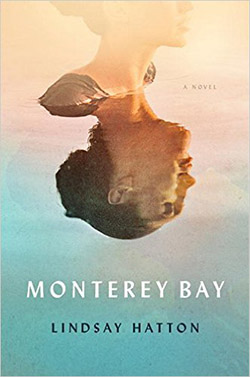
Lindsay Hatton's debut explores the creation of the world famous Monterey Bay Aquarium in novel form: In 1940, Margot Fiske and her father arrive in Monterey, which John Steinbeck has recently described in Cannery Row. Ed Ricketts, the biologist called "Doc" in Steinbeck's novella, becomes an object of fascination for Margot — whose father, unbeknownst to her, is working with Ricketts to transform Cannery Row into an aquarium.
Freeman's: Family, by John Freeman (August)
John Freeman got an all-star group of writers to be featured in the first issue of his literary magazine, Freeman's: Arrival. The new issue, out this August, will feature a similarly dazzling cast writing instead on the subject of family. The anthology includes never-before-published stories, essays, and poems by the likes of Claire Messud, Aminatta Forna, Claire Vaye Watkins, Aleksandar Hemon, Angela Flournoy, and many others. If you don't have time to read all the books mentioned here, this is a great tasting plate of the best writers working in the business today.
Here I Am, by Jonathan Safran Foer (Sept. 6)
Jonathan Safran Foer, the author of Extremely Loud and Incredibly Close and Everything is Illuminated, returns with his first novel in over a decade. Unfolding over three weeks in present-day Washington D.C., a family comes to question their relationship and the lives they are leading while, across the ocean, a massive earthquake sets off a pan-Arab invasion of Israel.
Also noteworthy: I Am No One, by Patrick Flanery (July 5); Ninety-Nine Stories of God, by Joy Williams (July 11); Here Comes the Sun, by Nicole Dennis-Benn (July 19); Riverine: A Memoir of Anywhere but Here, by Angela Palm (August 16); Intimations: Stories, by Alexandra Kleeman (September 13); How Will Capitalism End? by Wolfgang Streeck (September 13); The Underground Railroad: A Novel, by Colson Whitehead (September 13); The Lesser Bohemians, by Eimear McBride (September 20); Nicotine, by Nell Zink (October 4), The Princess Diarist, by Carrie Fisher (October 18).
Check back for recommendations for the second half of 2016 later this year.
Jeva Lange was the executive editor at TheWeek.com. She formerly served as The Week's deputy editor and culture critic. She is also a contributor to Screen Slate, and her writing has appeared in The New York Daily News, The Awl, Vice, and Gothamist, among other publications. Jeva lives in New York City. Follow her on Twitter.



